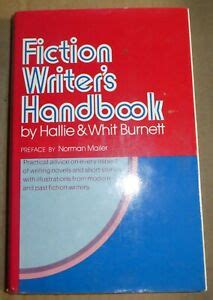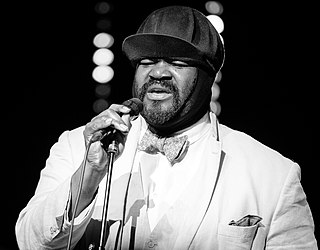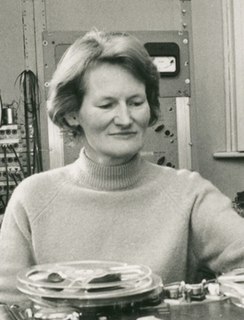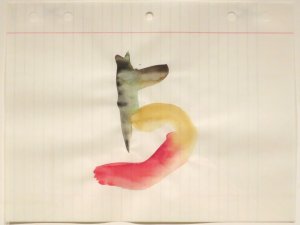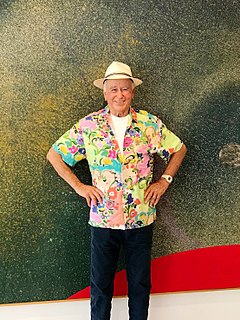A Quote by Robert Hughes
Far from affording artists continuous inspiration, mass-media sources for art have become a dead end. They have combined with the abstractness of institutional art teaching to produce a fine-arts culture given over to information and not experience. This faithfully echoes the drain of concreteness from modern existence- the reign of mere unassimilated data instead of events that gain meaning by being absorbed into the fabric of imaginative life.
Quote Topics
Related Quotes
Nursing is an art: and if it is to be made an art, it requires an exclusive devotion as hard a preparation as any painter's or sculptor's work; for what is the having to do with dead canvas or dead marble, compared with having to do with the living body, the temple of God's spirit? It is one of the Fine Arts: I had almost said, the finest of Fine Arts.
True art means if it helps you to become silent, still, joyous; if it gives you a celebration, if it makes you dance—whether anybody participates with you or not is irrelevant. If it becomes a bridge between you and God, that is true art. If it becomes a meditation, that is true art. If you become absorbed in it, so utterly absorbed that the ego disappears, that is true art.
I believe Picasso's success is just one small part of the broader modern phenomenon of artists themselves rejecting serious art- perhaps partly because serious art takes so much time and energy and talent to produce-in favor of what I call `impulse art': art work that is quick and easy, at least by comparison.
Warhol and other Pop artists had brought the art religion of art for art's sake to an end. If art was only business, then rock expressed that transcendental, religious yearning for communal, nonmarket esthetic feeling that official art denied. For a time during the seventies, rock culture became the religion of the avant-garde art world.
Much like teaching art to young art students age 10 to 15 or so on, you have to break it down into bite-sized pieces, essential components. You have to - you know, at this point I'm so used to operating within given assumptions about art. But when you're explaining art to art students or people who are new to this experience, you have to really go back to the fundamentals.
You take a sound, any sound, record it and then change it's nature by a multiplicity of operations. You record it at different speeds; you play it backwards; you add it to itself over and over again. You adjust filters, echoes, acoustic qualities…you produce a vast and subtle symphony. It's a sort of modern magic. We think there's something in it. Some musicians believe it may become an art form in its own right.
I was on television a couple of years ago and the reporter asked me, "How does it feel being on mainstream media? It's not often poets get on mainstream media." I said, "Well I think you're the dominant media, the dominant culture, but you're not the mainstream media. The mainstream media is still the high culture of intellectuals: writers, readers, editors, librarians, professors, artists, art critics, poets, novelists, and people who think. They are the mainstream culture, even though you may be the dominant culture."
Dancing and building are the two primary and essential arts. The art of dancing stands at the source of all the arts that expressthemselves first in the human person. The art of building, or architecture, is the beginning of all the arts that lie outside the person; and in the end they unite. Music, acting, poetry proceed in the one mighty stream; sculpture, painting, all the arts of design, in the other. There is no primary art outside these two arts, for their origin is far earlier than man himself; and dancing came first.
What strikes me is the fact that in our society, art has become something which is related only to objects and not to individuals, or to life. That art is something which is specialized or which is done by experts who are artists. But couldn't everyone's life become a work of art? Why should the lamp or the house be an art object, but not our life?
The voice of our age seems by no means favorable to art, at all events to that kind of art to which my inquiry is directed. The course of events has given a direction to the genius of the time that threatens to remove it continually further from the ideal of art. For art has to leave reality, it has to raise itself bodily above necessity and neediness; for art is the daughter of freedom, and it requires its prescriptions and rules to be furnished by the necessity of spirits and not by that of matter.
One of the crucial underpinnings of New York as a culture capital is that there are multiple markets. There is not just one art gallery district, there are several art gallery districts. I feel that there should be art galleries and art studios in every neighborhood without exception. They should be integrated into the social and physical fabric of the streets. If we want a lively city, we can't just have high towers and dense constructions, we have to have living organisms of streets and neighborhoods. And the arts are a crucial part of that.

